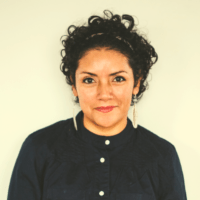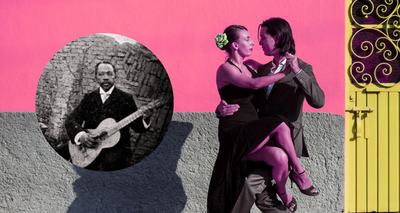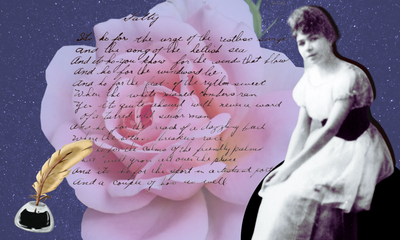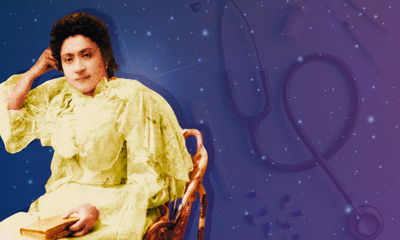It’s time to rewrite this story and start telling a new, more diverse and empowering one.
As Latinas, we’re impacted significantly by this dangerous, antiquated, and broken narrative.
It not only hurts Latinas, but it also hurts ALL genders. It keeps us ALL oppressed.
The Madonna-Whore Complex is at the root of so many relationship ills, but even worse, it very negatively impacts justice and its’ processes. And it needs to end.
It’ time to dismantle the shame, the misogyny, and the patriarchal brain-washing; and reclaim our whole selves.
So you might be asking… “What exactly IS the ‘Madonna-Whore Complex‘?”
Most people will point to or attribute Sigmund Freud (remember him, the ‘father of psychology’?) as the person who coined the term to describe how women are categorized and divided into two camps of ‘being’.
On the one hand, you have the Madonna. Self-explanatory. She’s virginal, pure, wholesome, and giving. She is elevated as the good and put on a pedestal as the type of woman to be revered. According to culture, she is the type you’d want to marry (aka ‘wifey material’ which is a term derived from this dichotomy).
On the other hand, you have the Whore. She’s the sexual, lustful, dirty-girl, that has the desire and want. She’s lowered down as the bad and shamed. YET she is desired, but only temporarily. According to culture, she is the type you don’t marry (aka ‘the mistress’, ‘the other woman’), she is the one you sleep with but don’t commit to.
You may be thinking, “But this is just how it is, and this is how it’s always been.” And you’re right. Up until now, this has been the accepted way of seeing women. We continue to perpetuate this dichotomy through our judgments and actions.
Here are some ways that our unconscious actions are dangerous for Latinas –
●Women who feel they are in the ‘Whore’ camp feel low self-worth and feel less worthy of love and respect.
● Women who feel they are in the ‘Madonna’ camp feel trapped in a role that limits their capacity to experience the full range of sexual experiences they may be capable of having.
● For anyone who has experienced sexual abuse or assault, they may feel that they are ‘damaged goods’ and may develop deep-seated shame
● Men treat women differently based on their sexual history both in intimate relationships and in places like workspaces.
● A family may ostracize a girl/woman for how she dresses and/or behaves and potentially blame her for any harassment, abuse, or assault, with judgments like: ‘she brought that upon herself.’
But let’s go back in time for a minute to understand the origin of this belief system; way back… to Freud. Freud argued that the Madonna-whore complex was caused by “a split between the affectionate and the sexual currents in male desire.” He’s quoted saying “Where such men love they have no desire and where they desire they cannot love,”
Essentially, Freud is saying that a man can love a Madonna and not desire her, and desire a whore and not love her and that there is no middle ground.
But that’s one tiny piece of the puzzle of why this concept, complex and construct exists today.
Freud only pointed out something that he saw evidence of in white male Victorians of his time. The Madonna-Whore Complex, as he titled it, actually goes WAY back.
Without getting into a history lesson, I want to offer information that points to, not just the past, but to current practices.
Let’s begin with how women used to be married off to produce children that would be the heirs of the family’s wealth, or as an organized way to transfer property from one generation to the next (women were part of the property transferred from one family to the other.)
Virginity, therefore, was a factor in determining the heir. They viewed it as an ‘insurance policy’ so that the woman/bride-to-be would produce a true heir. Hence virginity became the revered value a woman could claim upon entering a marriage/property union.
This value system became ingrained in the culture as the prized status, the only ‘true value’ that a woman could use as her currency. She was (is) seen as a ‘commodity’ in the patriarchal system.
All of these beliefs were reinforced by religion and the many myths that surround sexuality and pleasure (think Adam & Eve, Mary Magdeline, etc.).
Women were considered to be non-sexual because they were virgins, and that is what men equated with value. Therefore, to have sexual desire would mean that a woman would have had to have sexual experiences to have a desire at all- or so, the thinking went. Inside this sexual caste system, it would make a woman less valuable (although still ‘desirable’ in other ways).
So now, lets fast forward to 2020. This antiquated way of thinking is still prevalent today in LITERAL ways, as seen in many countries that still practice arranged marriages, and worse still, child marriages (p.s. around the world the stats as of 2019 show that 1 in 5 women were married before their 18th birthday).
There are doctors who still do “virginity” exams for the family before marrying off the daughter. This still happens in Latin American countries. It even happens today in America (think T.I. and his daughter Deyjah).
You may hear it in your homes, from parents, grandparents, aunts/uncles who shame girls for dressing in ways that make them look ‘too sexy’. Besides a ‘safety issue’ (as many parents will say), they are also concerned about how it could impact their social status and the social status of the familia. But the truth is, that the way a woman dresses, or the amount of sex or number of sexual partners a woman has should have no bearing on her value as a person.
Let’s liberate ourselves and each other and dismantle this old fashioned, dangerous and patriarchal way of thinking and acting.

Rosalia Rivera is a passionate consent educator, abuse prevention specialist, sexual literacy advocate, speaker, change agent, and survivor turned thriver. She is the host of AboutCONSENT™, a podcast for survivors and those who support survivors. Rosalia is also the founder of CONSENTparenting™, an online platform with courses, workshops and membership for adult CSA* survivor parents to learn how to protect their families from abuse. She’s also a 1st generation Salvadoran Latinx mother of three young children and lives in N. Ontario Canada with her husband.






